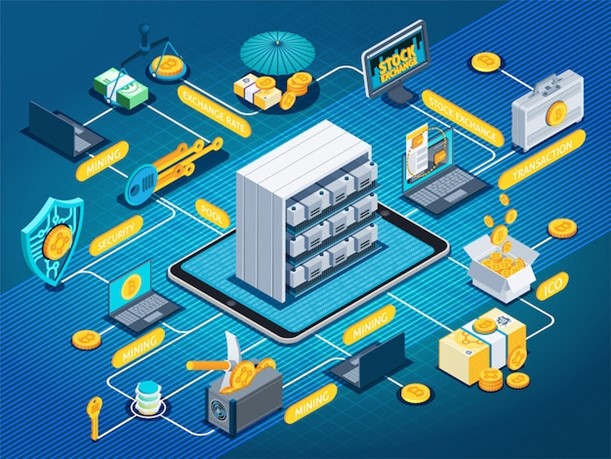The concept of a decentralized internet, often referred to as Web 3.0, has been gaining significant attention in recent years. It envisions a more open, transparent, and user-centric online ecosystem that reduces reliance on centralized authorities and enhances privacy, security, and freedom of expression. At the heart of this vision lies the potential of cryptocurrencies to play a crucial role in building and supporting a decentralized internet. In this article, we will explore the role of cryptocurrencies in shaping the future of the internet.
- Peer-to-Peer Transactions: Cryptocurrencies enable peer-to-peer transactions without the need for intermediaries, such as banks or payment processors. They utilize blockchain technology to facilitate secure and transparent transactions directly between individuals or entities. This decentralized nature of cryptocurrencies aligns with the vision of a decentralized internet, where users can transact directly with one another, bypassing traditional intermediaries and reducing associated fees and restrictions.
- Incentivizing Network Participation: Cryptocurrencies often employ incentive mechanisms to encourage active participation and contribution to the network. These incentives can take the form of tokens or coins that are rewarded to individuals who provide computing resources, validate transactions, or contribute to the overall network infrastructure. By incentivizing participation, cryptocurrencies foster a decentralized ecosystem where users are motivated to actively contribute to the functioning and security of the network.
- Decentralized Storage and Content Distribution: The decentralized nature of cryptocurrencies can also be leveraged for decentralized storage and content distribution. Projects like Filecoin and IPFS (InterPlanetary File System) utilize blockchain and cryptocurrency technologies to create decentralized storage networks where users can store and retrieve data in a distributed and secure manner. This approach eliminates the reliance on centralized servers, reduces the risk of data breaches, and allows for more efficient and resilient content distribution.
- Funding Decentralized Applications (DApps): Cryptocurrencies have become a popular method of funding decentralized applications (DApps) through initial coin offerings (ICOs) or token sales. These fundraising mechanisms enable developers to secure capital for their projects directly from the community, bypassing traditional venture capital or investment channels. This democratization of funding empowers developers to build innovative DApps that align with the principles of a decentralized internet.
- Governance and Consensus: Cryptocurrencies often implement decentralized governance models, where holders of the currency can participate in decision-making processes. This allows for a more democratic and inclusive approach to decision-making within the network. Decentralized consensus mechanisms, such as proof-of-stake or delegated proof-of-stake, enable cryptocurrency holders to participate in validating transactions and securing the network without the need for centralized authorities.
- Monetization of Digital Assets: Cryptocurrencies enable the tokenization of digital assets, allowing for the creation, ownership, and transfer of unique digital assets or non-fungible tokens (NFTs). These digital assets can represent various forms of digital content, including artwork, music, collectibles, and virtual real estate. By utilizing cryptocurrencies, creators and owners can securely monetize their digital assets and engage in peer-to-peer transactions without relying on traditional intermediaries.
While the concept of a decentralized internet is still in its early stages, cryptocurrencies have shown great potential in facilitating its development. Through their decentralized nature, peer-to-peer transactions, incentive mechanisms, decentralized storage, funding for DApps, governance models, and asset monetization, cryptocurrencies are paving the way for a more open, transparent, and user-centric internet.
However, challenges such as scalability, user experience, and regulatory considerations need to be addressed to realize the full potential of cryptocurrencies in building a decentralized internet. As technology continues to evolve and innovative solutions emerge, we can expect cryptocurrencies to play an increasingly significant role in shaping the future of the internet, promoting decentralization, and empowering users with greater control over their digital lives.










